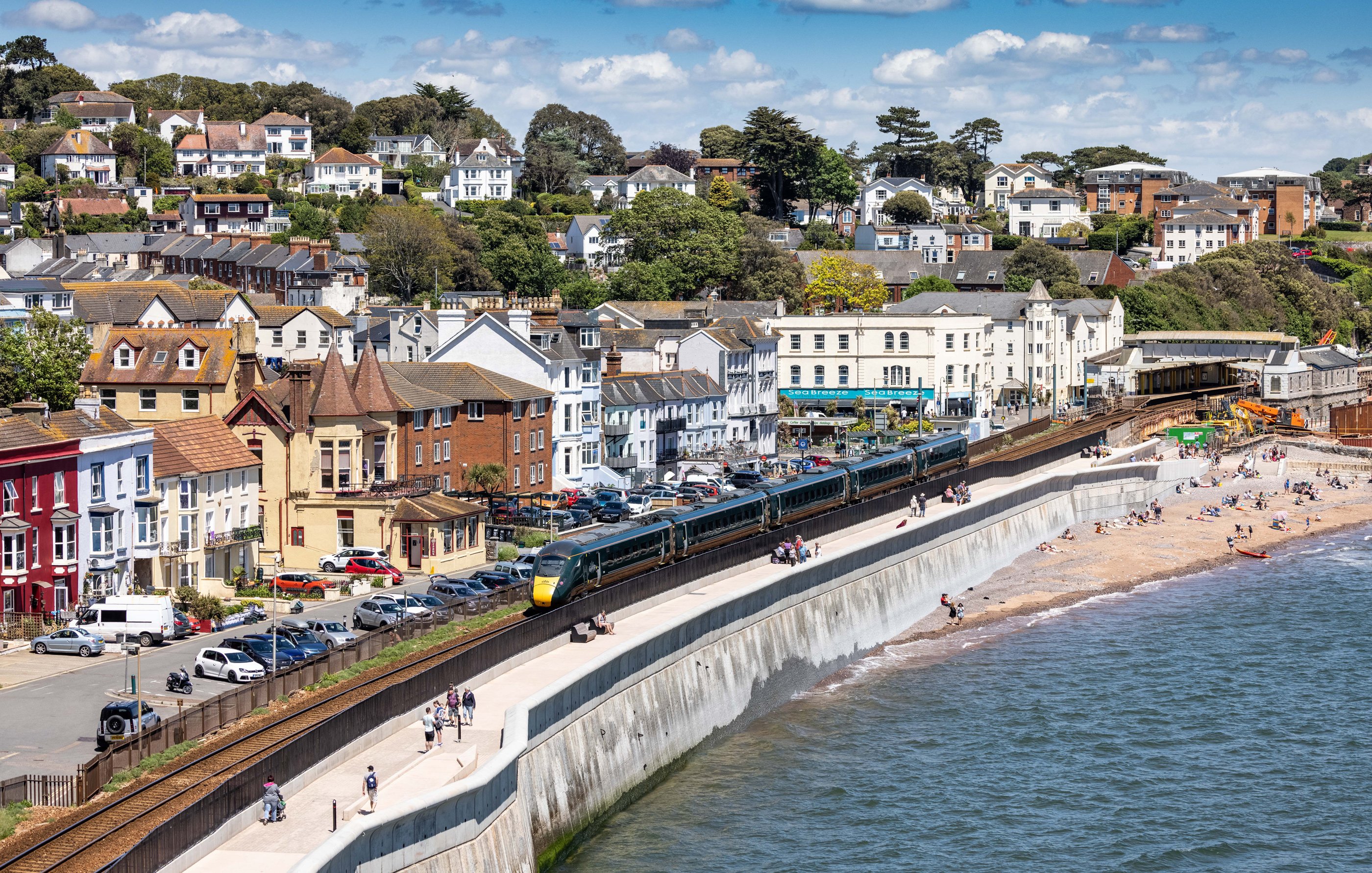Dawlish sea defences
HeidelbergCement's British subsidiary Hanson has supplied 4,600 cubic metres of specialist low carbon concrete to support BAM Nuttall and Network Rail in completing the first and second phase of building a new sea wall in Marine Parade, Dawlish, Devon.
The bespoke mix uses Regen GGBS to create a low carbon concrete that is strong enough to withstand storm winds while reducing the amount of carbon generated by two-thirds. It is being used to deliver vital coastal protection works to safeguard the future of the railway line.
Jack Brookes, site agent, BAM Nuttall, said: “From the earliest phase of this project, we have considered how this scheme can limit its environmental impact without compromising the strength and resilience of the structure. The final design uses piles buried deep in the bedrock to create stability for the structure. Those piles are protected by prefabricated facing panels created off-site and reinforced by concrete poured in behind the visible section of wall. We identified Hanson’s low carbon concrete as an innovative product that could help us to reduce our carbon impact by two-thirds while retaining the strength of traditional concrete. We worked closely with Network Rail to ensure that the material is approved for use on Britain’s railway and look forward to seeing it being used in more major civil engineering schemes.”
Hanson will supply a further 4,500 cubic metres of low carbon concrete to the project, which, in total, will save 1,130 tonnes of CO₂ from entering the atmosphere in comparison to traditional concrete – the equivalent of flying 668 passengers from London to New York and back.

Dawlish sea defences.
BAM Nuttall

Dawlish sea defences.
BAM Nuttall
